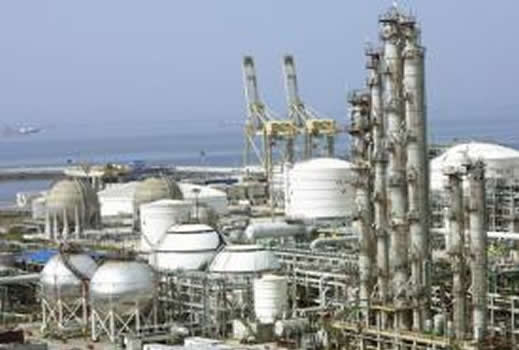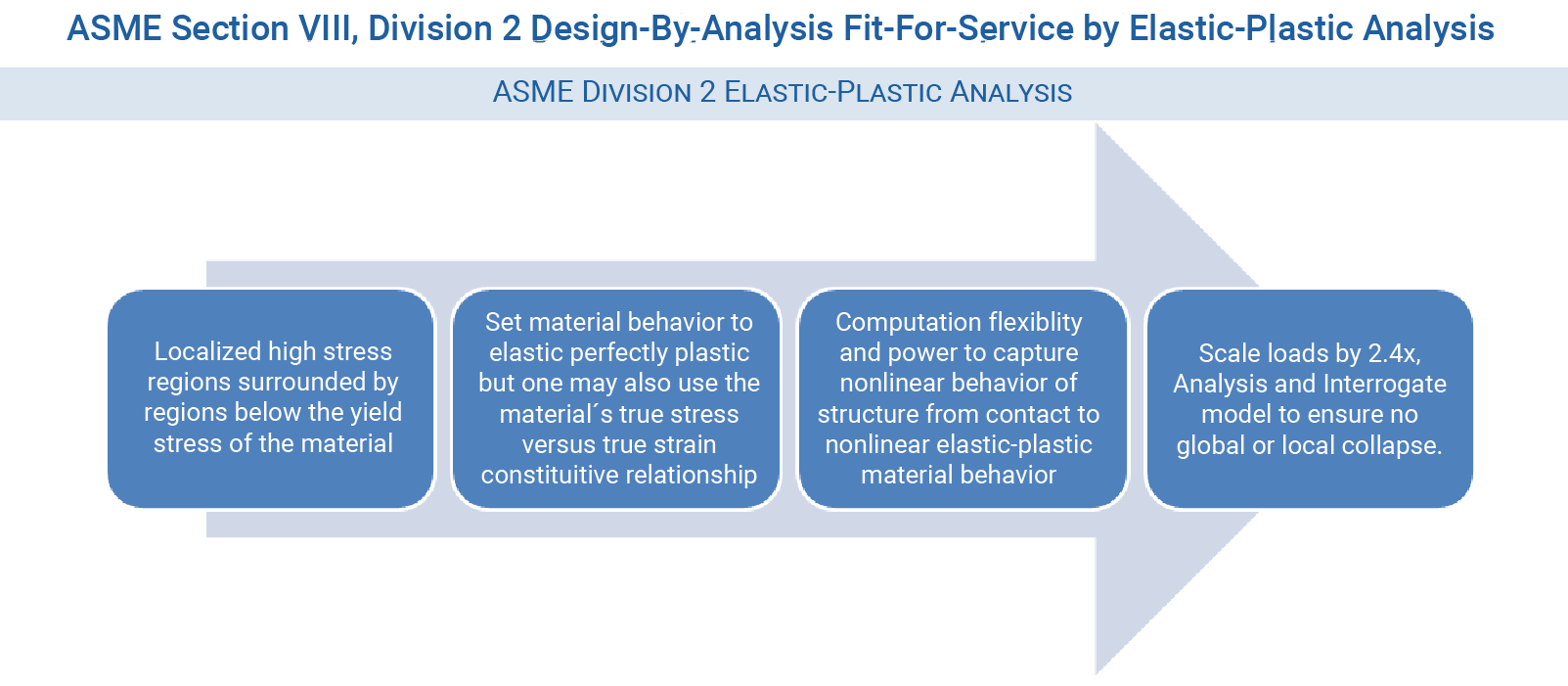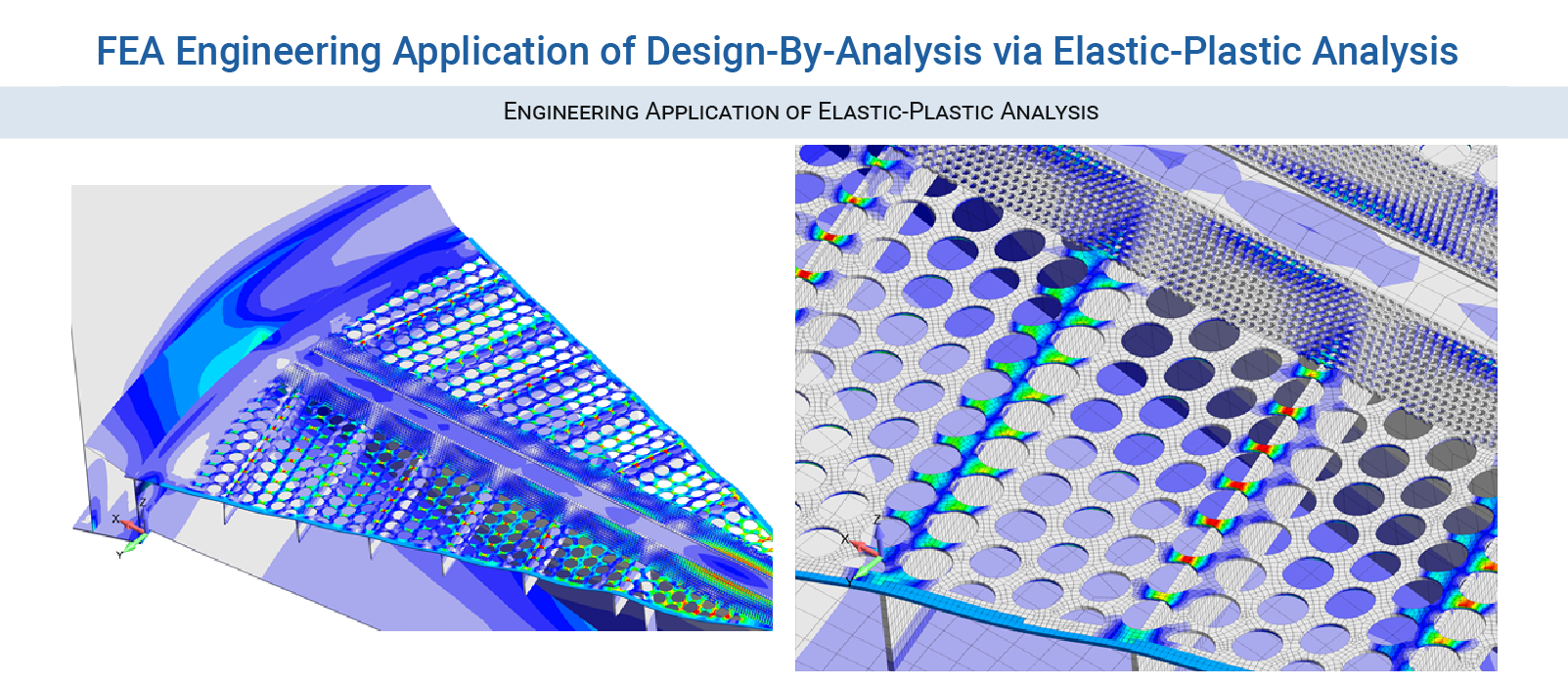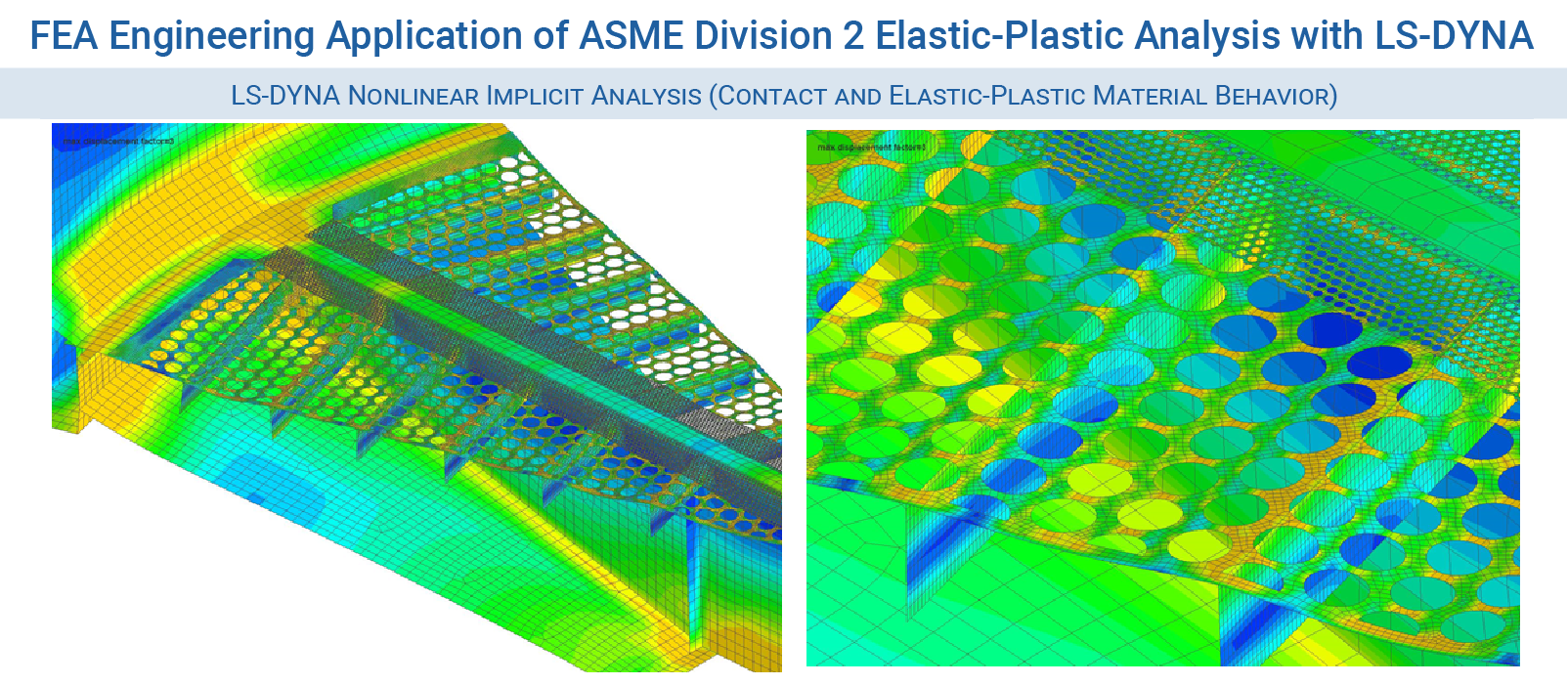Design-by-Analysis - Nonlinear FEA Elastic-Plastic Stress Classification

Analysis
Objective
The ASME code provides significant leeway in the classification of pressure vessels as fit-for-service within the Section VIII, Division 2 code. In this case study, interior, load-bearing structural components were failing under the standard linear stress design-by-analysis classification methods.
Upon closer inspection of the stress results, it was noted that the non-complying high stress regions were localized and that the surrounding steel had stresses mostly below the yield stress of the material. This combination opened the door for another route toward classification of the pressure vessel, namely via Elastic-Plastic Analysis and Protection Against Plastic Collapse (see ASME BPVC VIII 2 Chapter 5.2 and Table 5.5). The application of this procedure is straightforward as: i.) scale all mechanical loads by 2.4; ii) set material behavior as elastic, perfectly plastic (most conservative approach); iii) include all nonlinear behavior in model involving contact and plastic deformation of the material; and iv) statically solve the model and verify that it can statically withstand the loading with no global or local collapse.
We’ll walk through our procedure and show a few of the results that one might expect to see in other applications of this technique.
Note: This FEA consulting services project was part of a much larger project involving very large vessels used to treat noxious organic gasses generated within common industrial processes.
PDF Download



